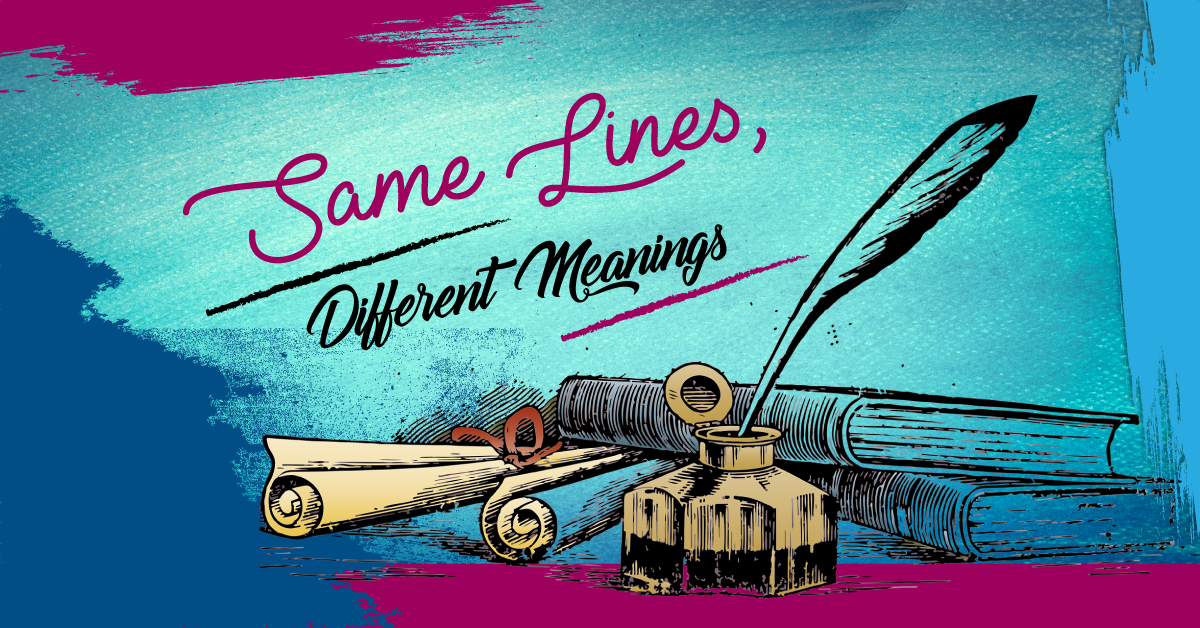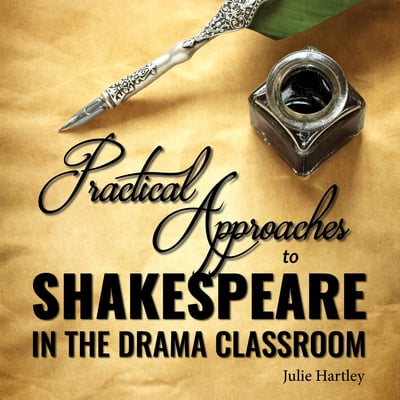Put Shakespeare in Context
If you’re going to study theatre history, Shakespeare and the Elizabethan Era are two of the most fascinating topics to study. But time and time again students (and teachers) resist against learning the Shakespearean plays written during this time because of the language barrier. The formal quality of the text prompts students to think of Shakespeare as boring, stuffy, and irrelevant to the modern world.
This is a common and widespread opinion of Shakespeare. But if you look at Shakespeare in the context of his time, there’s almost an overwhelming amount of action and sensory overload. At one point, the Pope declared it was not a sin to assassinate Elizabeth the First. Plague swept through London numerous times. Sewers were non-existent so people threw their refuse into the streets. Violence, torture, and public punishment were a daily occurrence.
The theatre was not exempt from this atmosphere:
- The main competition for theatre at the time was a sport called “bear baiting.” That means Shakespeare had to be lively enough to entertain an audience used to seeing dogs fight a bear to the death. Fight scenes in plays were gory – actors would put filled pig bladders under their costumes so that when pierced would spout blood.
- Playwright Christopher Marlowe was killed in a bar fight and Ben Jonson killed an actor in a duel.
- Any actor who was caught performing outside the parameters of a sanctioned theatre company was “grievously whipped and burned through the gristle of the right ear with a hot iron of the compass of an inch about” (1911 Encyclopædia Britannica, Theatre).
When studying the Elizabethan Era, it’s important to bring to life the time period as it was, not as we perceive it. Put Shakespeare and the era in context to help students realize he was a playwright that wrote plays for the common man.
For example: No one sat quietly to watch a Shakespeare play at The Globe Theatre. The groundlings stood in a pit before the stage and were incredibly vocal throughout the entire performance. The experience had more in common with a wrestling match than a Broadway show.
Another example: Today we think of actors spending months and months on their parts, getting into the character to give a fully realized performance. In Shakespeare’s time, new plays were performed on a sometimes weekly basis. And no one got a full script. They only got their lines on a roll (this is where the term “role” comes from, for an actor). It was a fast rehearsal, most of the time without a director and definitely not with a stage manager. Above all else, actors had to focus on being entertaining and keeping an audience. Remember, their competition was bear baiting.
What are some activities you can use in the classroom to put both Shakespeare and the Elizabethan Era in context?
- Have volunteers perform a scene with a rowdy, loud, and verbally responsive audience. What is that like? Is it hard to concentrate? How does the audience experience differ from what we’re use to?
- Create scenes that use modern sports commentary to fit the Elizabethan sport of bear baiting.
- Write a journal entry from the perspective of an audience member seeing one of Shakespeare’s plays for the first time. Decide if you are a groundling, or one of the upper class. How does the language in your journal entry change depending on your class?
- Take a modern scene and cut it up so that actors only receive their lines and their cue line. Then have them read through the scene. Discuss what the experience is like to act that way. What did it feel like to to have to listen for lines? Try the same exercise with a Shakespeare scene as they would have done in the Elizabethan Era.
- There’s a reason Shakespeare drew from the past for his work instead of current events. Have students research censorship in the Elizabethan Era – for example The Isle of Dogs. Compare and contrast censorship in the Elizabethan Era (and what happened to playwrights who disobeyed the rules) to what happens in your school when putting on plays. Are there certain topics that are off limits? Who sets those rules?
- Have students research what it was like to be an actor in the Elizabethan Era. Theatre was not a revered profession. The Vagabond Act of 1572 established severe punishment for actors not associated with a company. In 1576, all theatre was banned within London. Write a scene in which a group of actors debates whether or not they’re going to remain actors.
- Further to that, all plays had to be vetted and given a license by the Master of Revels. Divide the class into groups, which are now separate acting companies. Each acting company has to come up with a name and a patron, the name of their theatre, a motto, and a company crest. Each acting company must come up with a 1-minute play to perform before the Master of Revels. Who will be granted a license to perform their play?
- Have students identify the symptoms for the plague. How do they compare and contrast with modern diseases? Write a scene in which one of the characters is a personification of “the plague.” How would others talk to this character?
Related Articles
Practical Approaches to Shakespeare in the Drama Classroom
by Julie Hartley
Shakespeare is one of the greatest resources a drama teacher can have. But teaching it can be a challenge. Practical Approaches to Shakespeare in the Drama Classroom helps drama teachers break down the Bard to make his themes, language and characters accessible to all.
Script Bundle - Shakespeare plays
A selection of 10 Shakespeare perusal scripts. Whether it's a cutting that uses the original text, a monologue or scene book, or a parody that spoofs the story, these plays offer a great window into Shakespeare's world.





